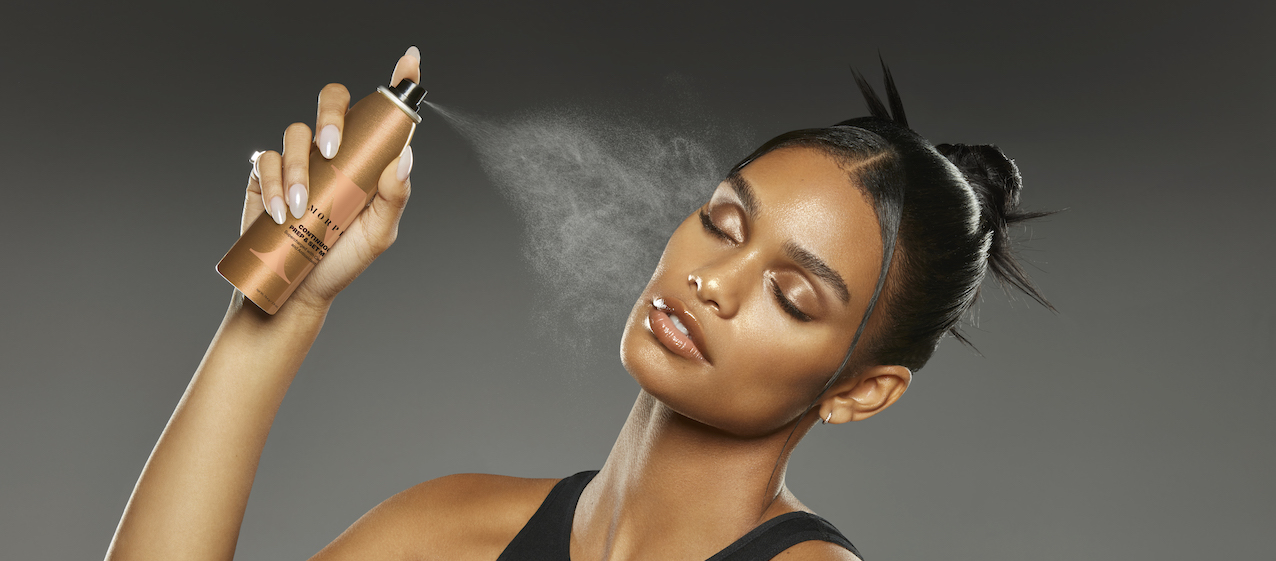When diving into the expansive world of cosmetics, one often encounters various formulations designed to achieve flawless results. Morphe, renowned for its broad array of beauty products, has captivated makeup aficionados with its offerings. Among these products, concealers play a pivotal role in helping achieve a polished complexion. This article aims to dissect whether Morphe concealer is water-based and explore the implications of its formulation.
To set the stage, let’s explore the significance of the concealer in a makeup arsenal. Concealers are not merely tools for hiding imperfections; they are finesse products that can brighten, highlight, and contour the face. With their various types—liquid, cream, stick, and pencil—each formula caters to different skin types and desired finishes. In this context, understanding the base composition of a concealer, particularly whether it is water-based, can dictate its application and longevity.
Water-based concealers have surged in popularity in recent years, praised for their lightweight consistency and skin-friendly attributes. They are predominantly formulated with water as the primary ingredient, often supplemented with other hydrating ingredients. This results in a product that feels feather-light on the skin, offering a natural finish that seamlessly blends into the complexion.
On the flip side, oil-based concealers tend to deliver fuller coverage and a creamier texture, making them ideal for achieving a more opaque finish. However, the heavier texture of oil-based formulas may not appeal to those with oily or combination skin, as they can exacerbate shine and lead to an unwanted greasy appearance.
Now, does Morphe’s concealer fall under the water-based category? Upon reviewing their product specifications, it becomes evident that Morphe takes a hybrid approach to formulation. While the brand does employ water as one of its foundational components, it also integrates other ingredients that alter the final product’s composition.
One noteworthy feature of some Morphe concealers is the utilization of polymers. These agents can enhance the texture, making it more conducive to a smooth application. However, this incorporation can also indicate that the product may not be entirely classified as water-based, depending significantly on the formulation specifics of each product line.
Morphe’s offerings boast a spectrum of shades, catering to a diverse clientele ranging from porcelain to deep ebony tones. This inclusivity is paramount in the beauty industry, ensuring that everyone has access to products that match their unique skin tone. This factor becomes especially critical with concealers, where the right shade can significantly impact the product’s effectiveness in masking dark circles, blemishes, or redness.
Another consideration when evaluating Morphe’s concealer is its coverage type. Some variants may offer sheer coverage, ideal for those who prefer a more natural look, while others provide full coverage for maximum concealment. The choice largely depends on individual preferences and makeup routines. Users may find that experimenting with different formulations can lead to discovering the most effective product for their needs.
When contemplating the longevity of Morphe concealer, its formulation again plays a vital role. Water-based products typically allow for a lightweight feel but may not endure hot, humid conditions as effectively as their oil-based counterparts. Many users looking for all-day wear often seek products that contain ingredients aimed at enhancing durability, such as silicones or waxes. These components can impart water resistance, ensuring that makeup remains intact throughout the day.
Additionally, formulation offers vital information about the potential for breakouts. Water-based concealers are generally non-comedogenic, thus allowing the skin to breathe and reducing the risk of clogged pores. This attribute makes them suitable for sensitive or acne-prone skin. Conversely, users with such skin types may need to be cautious with oil-based concealers, which can exacerbate existing skin challenges.
Furthermore, those with dry skin might gravitate toward a water-based concealer for its hydrating properties. Ingredients such as glycerin and hyaluronic acid, commonly found in these types, can help maintain moisture levels in the skin. On the other hand, individuals with oily skin might benefit from using a product that balances hydration without adding excess shine.
In addition, the application techniques vary based on the formulation type. Water-based concealers typically blend well with brushes or sponges, resulting in a seamless finish. The subtle texture allows for building layers without heavy buildup, ensuring that the concealer looks natural rather than cakey.
Lastly, the price point of Morphe concealers is another factor to consider. They are generally positioned within the affordable range, making them accessible for consumers across various budgets. This affordability has contributed to Morphe’s popularity, particularly among younger beauty enthusiasts eager to explore diverse makeup applications without the luxury price tag.
In conclusion, while Morphe concealers incorporate water in their formulations, distinguishing them as purely water-based may be an oversimplification. These products exist in a nuanced space where their formulation can cater to a plethora of skin types and desired outcomes. Whether aiming for a lightweight, hydrating product or seeking fuller coverage, understanding the specific qualities of Morphe concealers equips users to make informed choices tailored to their unique needs. The world of concealers is undoubtedly intricate, and Morphe’s contributions only enrich the ongoing conversation surrounding beauty and personal expression.

